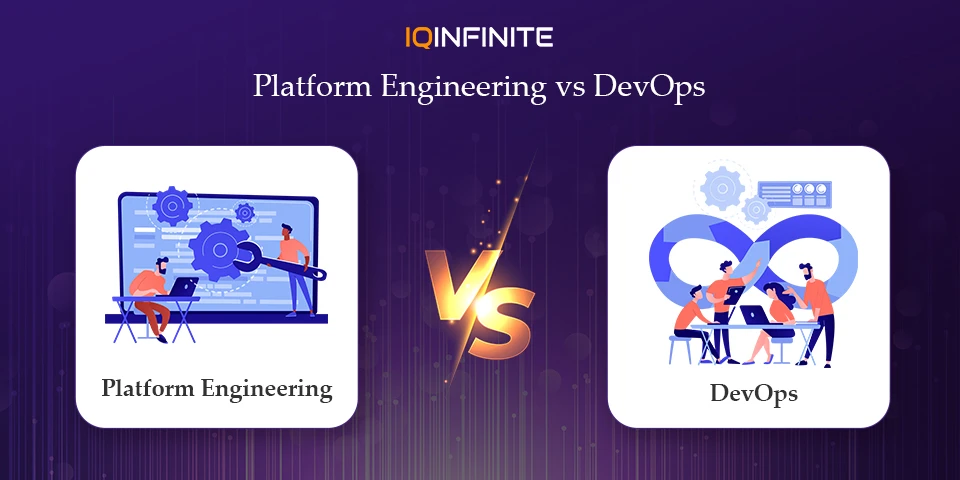Platform Engineering vs DevOps: The New Era of Developer Experience

In today’s rapidly evolving digital landscape, speed, scalability and reliability have become the cornerstones of successful software delivery. Over the past decade, DevOps has transformed how development and operations teams collaborate breaking silos and accelerating innovation.
Now, a new paradigm is emerging Platform Engineering a discipline designed to enhance developer productivity through standardized, self-service platforms. In an era where even advanced AI systems face challenges such as ChatGPT störungen (service disruptions), the demand for resilient and scalable infrastructure has never been higher.
As organizations continue to scale and mature, one key question arises:
Is Platform Engineering replacing DevOps or are they working hand in hand to redefine the developer experience?
Let’s dive deeper into how these two approaches are shaping the future of modern software development.
1. Understanding DevOps
Core Principles of DevOps
• Collaboration: Breaking silos between Dev and Ops teams.
• Automation: Streamlining CI/CD pipelines, testing and deployments.
• Continuous Improvement: Monitoring, feedback and iteration for faster delivery.
• Shared Responsibility: Everyone owns quality and stability.
Popular DevOps Tools: Jenkins, GitHub Actions, Kubernetes, Docker, Ansible, Terraform.
2. What is Platform Engineering?
Instead of every developer configuring infrastructure manually, platform teams create standardized tools and environments that automate repetitive tasks.
Core Principles of Platform Engineering
• Self-Service: Developers can deploy with minimal ops intervention.
• Standardization: Consistent environments across teams.
• Automation: Infrastructure-as-code and policy-driven operations.
• Developer-Centric Design: Improving developer productivity and experience.
Popular Platform Engineering Tools: Backstage (by Spotify), Crossplane, Pulumi, ArgoCD, Kubernetes.
Key Differences Between DevOps and Platform Engineering
1. Focus
Platform Engineering, on the other hand, focuses on building internal developer platforms (IDPs) that streamline workflows and make it easier for developers to deploy and manage applications.
2. Goal
Platform Engineering aims to improve the overall developer experience, scalability and efficiency by providing standardized, reusable tools and environments.
3. Ownership
Platform Engineering introduces a dedicated platform team responsible for maintaining and evolving the internal platform to meet developer needs.
4. Tooling
Platform Engineering uses internal developer platforms, service catalogs and self-service interfaces that abstract complexity and empower developers.
5. Outcome
Platform Engineering delivers self-service capabilities, consistency and scalable environments that enhance developer productivity.
How Platform Engineering Enhances DevOps
When combined, DevOps and Platform Engineering unlock several transformative benefits:
- Faster Deployments: Developers can release software more quickly and reliably, thanks to standardized, self-service platforms.
- Reduced Cognitive Load: By abstracting complexity, developers can focus on building features rather than managing infrastructure.
- Stronger Governance and Compliance: Centralized platforms ensure consistent standards and policies across teams.
- Accelerated Innovation: Automation and reusable components free up teams to experiment, iterate and deliver value faster.
The Future: Developer Experience (DevEx)
Platform Engineering plays a pivotal role in this transformation. By providing intuitive tools, standardized environments and reliable automation, it empowers developers to work faster, smarter and more efficiently.
Organizations embracing this approach are seeing tangible benefits:
- Higher Developer Satisfaction: Developers spend more time creating and less time troubleshooting.
- Faster Time to Market: Streamlined workflows accelerate software delivery.
- Improved Software Quality: Consistent environments and automated processes reduce errors and enhance reliability.
Conclusion
Rather than replacing DevOps, Platform Engineering complements and enhances it, enabling a future where developers focus on innovation, while robust platforms handle the underlying complexity.
With the integration of Gemini AI, teams can further enhance automation, intelligence and decision-making empowering developers with AI-driven insights and faster workflows.
Together, they are reshaping the developer experience, making software delivery faster, more reliable and more enjoyable than ever before.
